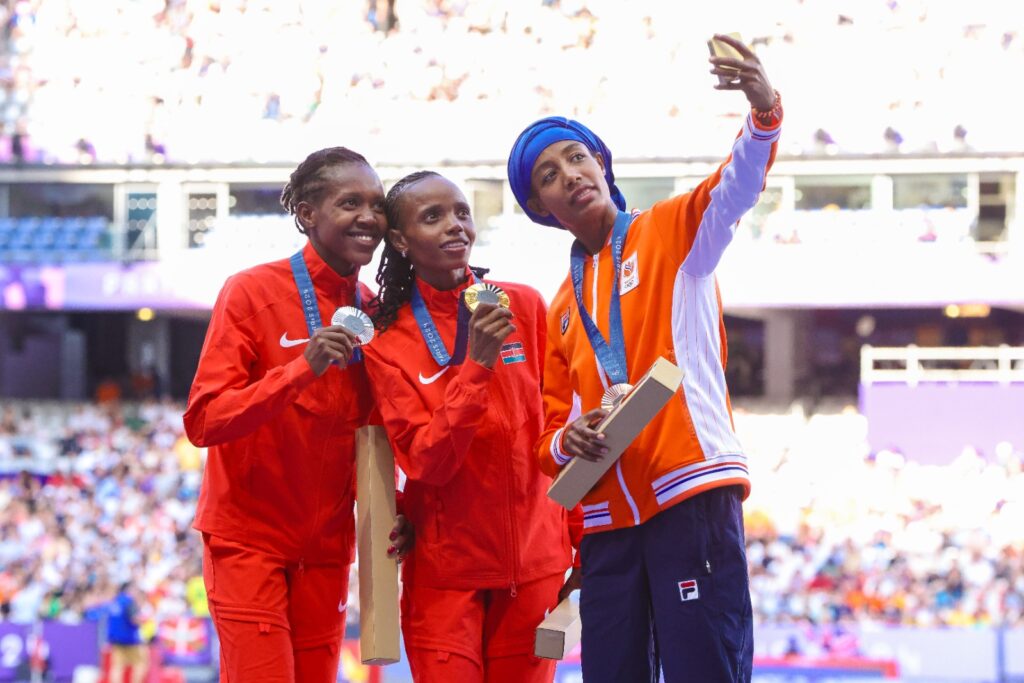How Kenya’s Olympic Prize Money Stacks Up Against Global Leaders
Kenya’s athletes once again made their mark on the global stage at the Paris 2024 Olympics, showcasing their talent and determination. The country’s impressive performance resulted in several medals, with standout athletes like Beatrice Chebet earning significant accolades. However, when it comes to financial rewards, the incentives provided to Kenyan athletes, while meaningful within the country, are modest compared to those offered by other nations around the world.
How Kenya’s Olympic Prize Money Stacks Up Against Global Leaders
Kenyan gold medalists at the Paris 2024 Olympics were awarded Ksh3 million, while silver and bronze medalists received Ksh2 million and Ksh1 million, respectively. Beatrice Chebet, who emerged as one of the brightest stars of Team Kenya, earned a total of Ksh19 million for her remarkable achievements in winning two gold medals in the 5000m and 10000m events. While these figures are substantial and appreciated by the athletes, they are significantly lower than the rewards offered by some of the world’s wealthiest nations.
When comparing Kenya’s Olympic prize money to that of global leaders, it becomes evident that the financial incentives provided to Kenyan athletes are relatively modest. For example, in Hong Kong, a gold medalist at the Olympics receives a staggering Ksh99 million. This makes Hong Kong one of the most generous nations in terms of rewarding Olympic success. Similarly, Singapore offers its gold medalists Ksh97 million, making it another country that heavily invests in incentivizing its athletes to reach the top podium.
Even European countries like France, which hosted the Paris 2024 Olympics, offer more substantial rewards than Kenya. French gold medalists were awarded Ksh11 million each, an amount that is almost four times higher than what is given to Kenyan gold medalists. This increase in financial rewards reflects France’s commitment to motivating its athletes and recognizing their efforts on a global stage.
In the United States, where sports are a significant part of the national culture, the rewards are also notable. U.S. athletes who won gold medals received Ksh4.9 million, while silver and bronze medalists were awarded Ksh2.9 million and Ksh1.9 million, respectively. Although these figures are lower than those in Hong Kong and Singapore, they still surpass Kenya’s financial incentives by a considerable margin.
Germany, another major player in international sports, also rewards its athletes with substantial sums. German gold medalists were awarded Ksh2.8 million for their achievements. Additionally, the German Sports Aid Foundation provides financial prizes to athletes finishing up to eighth place, ensuring that a wider pool of competitors benefits from their Olympic participation.
Despite the lower financial incentives, Kenyan athletes continue to shine on the global stage, driven by a deep sense of national pride and the honor of representing their country. The rewards they receive, though modest in comparison to other countries, are a testament to their hard work, dedication, and the recognition of their achievements by the Kenyan government and people.
One might argue that financial rewards are not the only form of motivation for Olympic athletes. Indeed, the pride of representing one’s country and achieving personal and national glory can often outweigh monetary incentives. This is particularly true for Kenyan athletes, many of whom come from humble beginnings and see their success as a way to inspire the next generation.
However, the disparities in prize money between Kenya and other countries raise important questions about the level of investment in sports and the recognition of athletes’ contributions. While countries like Hong Kong and Singapore use financial incentives as a tool to encourage excellence in sports, Kenya might consider re-evaluating its reward system to better reflect the value of its athletes’ achievements.
Jambobet registration, is modest when compared to the rewards offered by global leaders. As the nation continues to produce world-class athletes who excel on the international stage, there may be a need to reassess how these athletes are financially rewarded for their success. Recognizing the efforts of these athletes with more substantial incentives could not only motivate them further but also help to elevate Kenya’s status in the global sports arena.
As Kenyan athletes continue to bring pride and honor to the nation, it is essential to ensure that their efforts are adequately rewarded. Whether through increased prize money, enhanced support systems, or additional incentives, there is room for growth in how Kenya recognizes and celebrates its Olympic champions.
ALSO READ:Mourinho’s Champions League Dreams Dashed as Fenerbahce Draws with Lille


